![Brotzmann, Peter / John Edwards / Steve Noble / Jason Adasiewicz: The Quartet [2 CDs] (Otoroku) Brotzmann, Peter / John Edwards / Steve Noble / Jason Adasiewicz: The Quartet [2 CDs] (Otoroku)](https://www.teuthida.com/productImages/misc4/35975.jpg)
One of Peter Brötzmann's final recordings, captured live at Cafe OTO with vibraphonist Jason Adasiewicz, bassist John Edwards, and drummer Steve Noble, presenting two nights of emotionally charged and fiercely expressive performances that blend power, lyricism, and deep intergenerational connection in a fitting and resonant farewell to the legendary saxophonist.
In Stock
Quantity in Basket: None
Log In to use our Wish List
Shipping Weight: 6.00 units
Sample The Album:
Peter Brotzmann-reeds
Jason Adasiewicz-vibraphone
Steve Noble-drums
John Edwards-bass
Click an artist name above to see in-stock items for that artist.
UPC: 5056321697356
Label: Otoroku
Catalog ID: ROKU 033CD
Squidco Product Code: 35975
Format: 2 CDs
Condition: New
Released: 2025
Country: Austria
Packaging: Digipack - 8 panel
Recorded live at Cafe OTO, in London, UK, on February 10th and 11th, 2023, by Billy Steiger. Mastered by Giuseppe Ielesi.
"Issuing Peter Brötzmann's final concerts on OTOROKU. When OTOROKU invited Peter to do a residency at Cafe OTO back in February 2023 they had no idea these would be his last ever shows and he played with such power it would have been hard for anyone present to believe he would never play publicly again.
Recorded over two nights this grouping of Jason Adasiewicz on vibraphone, John Edwards on bass and Steve Noble on drums feels especially resonant and personal to Cafe OTO. The first time Peter performed at the venue back in 2010 it was in a trio with John and Steve, (released as The Worse The Better kick starting our in-house record label) so it feels fitting that the last shows he ever played there should also have that trio at its core.
The quartet last played together at OTO back in 2013, (released as Mental Shake on OTOROKU), and Brötzmann humbly opened the return of the group saying, "it's a pleasure to be back" before launching straight into a long blast on the alto sax, swiftly met by the relentless energy and engagement of Adasiewicz, Edwards and Noble.
There are moments of tenderness to Brötzmann's playing that feels specific to this small group - one that cuts across three generations - and in a space that's come to feel like home. Of course, there is dizzying, forceful, singleminded playing, but even amongst a relentless chorus of cymbal splashes and busy vibraphone clusters the lyrical, spacious moments are savoured and held onto. As he remarked after at the end of the group's first visit to OTO, "the Quartet is, for us, a great adventure."
Peter clearly wanted to play to the end. Did he know these might be his last shows? We will never know. What is clear is he wanted to go out in style and on his terms. For anyone in the room at the time or listening to these recordings it's clear he achieved that."-OTOROKU
Also available as a 2-LP set.Artist Biographies
• Show Bio for Peter Brotzmann "Born Remscheid, Germany on 6 March 1941; soprano, alto, tenor, baritone and bass saxophones, a-clarinet, e-flat clarinet; bass clarinet, tarogato. Peter Brötzmann's early interest was in painting and he attended the art academy in Wuppertal. Being very dissatisfied with the gallery/exhibition situation in art he found greater satisfaction playing with semi-professional musicians, though continued to paint (as well as retaining a level of control over his own records, particularly in record sleeve/CD booklet design). In late 2005 he had a major retrospective exhibition jointly with Han Bennink - two separate buildings separated by an inter-connecting glass corridor - in Brötzmann's home town of Remscheid. Self-taught on clarinets, he soon moved to saxophones and began playing swing/bebop, before meeting Peter Kowald. During 1962/63 Brötzmann, Kowald and various drummers played regularly - Mingus, Ornette Coleman, etc. - while experiencing freedoms from a different perspective via Stockhausen, Nam June Paik, David Tudor and John Cage. In the mid 1960s, he played with American musicians such as Don Cherry and Steve Lacy and, following a sojourn in Paris with Don Cherry, returned to Germany for his unorthodox approach to be accepted by local musicians like Alex von Schlippenbach and Manfred Schoof. The trio of Peter Brötzmann, Peter Kowald and Sven-Ake Johansson began playing in 1965/66 and it was a combination of this and the Schoof/Schlippenbach Quintet that gave rise to the first Globe Unity Orchestra. Following the self-production of his first two LPs, For Adolphe Sax and Machine gun for his private label, BRÖ, a recording for Manfred Eicher's 'Jazz by Post' (JAPO) [Nipples], and a number of concert recordings with different sized groups, Brötzmann worked with Jost Gebers and started the FMP label. He also began to work more regularly with Dutch musicians, forming a trio briefly with Willem Breuker and Han Bennink before the long-lasting group with Han Bennink and Fred Van Hove. As a trio, and augmented with other musicians who could stand the pace (e.g. Albert Mangelsdorff on, for example, The Berlin concert), this lasted until the mid-1970s though Brötzmann and Bennink continued to play and record as a duo, and in other combinations, after this time. A group with Harry Miller and Louis Moholo continued the trio format though was cut short by Miller's early death. The thirty-plus years of playing and recording free jazz and improvised music have produced, even on just recorded evidence, a list of associates and one-off combinations that include just about all the major figures in this genre: Derek Bailey (including performances with Company (e.g. Incus 51), Cecil Taylor, Fred Hopkins, Rashied Ali, Evan Parker, Keiji Haino, Misha Mengelberg, Anthony Braxton, Marilyn Crispell, Andrew Cyrille, Phil Minton, Alfred 23 Harth, Tony Oxley. Always characterised as an energy player - and the power-rock setting of Last Exit with Ronald Shannon Jackson, Sonny Sharock and Bill Laswell, or his duo performances with his son, Casper, did little to disperse this conviction - his sound is one of the most distinctive, life-affirming and joyous in all music. But the variety of Brötzmann's playing and projects is less recognised: his range of solo performances; his medium-to-large groups and, in spite of much ad hoc work, a stability brought about from a corpus of like- minded musicians: the group Ruf der Heimat; pianist Borah Bergman; percussionist Hamid Drake; and Die like a dog, his continuing tribute to Albert Ayler, with Drake, William Parker and Toshinori Kondo. Peter Brötzmann continues a heavy touring schedule which, since 1996 has seen annual visits to Japan and semi-annual visits to the thriving Chicago scene where he has played in various combinations from solo through duo (including one, in 1997, with Mats Gustafsson) to large groups such as the Chicago Octet/Tentet, described below. He has also released a number of CDs on the Chicago-based Okka Disk label, including the excellent trio with Hamid Drake and the Moroccan Mahmoud Gania, at times sounding like some distant muezzin calling the faithful to become lost in the rhythm and power of the music. The "Chicago Tentet" was first organized by Brötzmann with the assistance of writer/presenter John Corbett in January 1997 as an idea for a one-time octet performance that included Hamid Drake and Michael Zerang (drums), Kent Kessler (bass) and Fred Lomberg-Holm (cello), Ken Vandermark and Mars Williams (reeds), and Jeb Bishop (trombone). The first meeting was extremely strong and warranted making the group an ongoing concern and in September of that same year the band was expanded to include Mats Gustafsson (reeds) and Joe McPhee (brass) as permanent members (with guest appearances by William Parker (bass), Toshinori Kondo (trumpet/electronics), and Roy Campbell (trumpet) during its tenure) - all in all a veritable who's who of the contemporary improvising scene's cutting edge. Though the Tentet is clearly led by Brötzmann and guided by his aesthetics, he has been committed to utilizing the compositions of other members in the ensemble since the beginning. This has allowed the band to explore an large range of structural and improvising tactics: from the conductions of Mats Gustafsson and Fred Lonberg-Holm, to the vamp pieces of Michael Zerang and Hamid Drake, to compositions using conventional notation by Ken Vandermark and Mars Williams, to Brötzmann's graphic scores - the group employs almost every contemporary approach to composing for an improvising unit. This diversity in compositional style, plus the variety in individualistic approaches to improvisation, allows the Tentet to play extremely multifaceted music. As the band moves from piece to piece, it explores intensities that range from spare introspection to all out walls of sound, and rhythms that are open or free from a steady pulse to those of a heavy hitting groove. It is clear that the difficult economics of running a large band hasn't prevented the group from continuing to work together since its first meeting. Through their effort they've been able to develop an ensemble sound and depth of communication hard to find in a band of any size or style currently playing on the contemporary music scene." ^ Hide Bio for Peter Brotzmann • Show Bio for Jason Adasiewicz "Jason Adasiewicz was born in Wichita, Kansas in 1977, but raised in Crystal Lake, Illinois. He studied jazz drums at DePaul University for three years. He only eased into the vibraphone after leaving school, playing it in the indie-rock scene around Chicago with bands like Pinetop Seven and the singer-songwriter Edith Frost. In the early 2000s he began his collaboration with cornetist Josh Berman and drummer Mike Reed. Since then he was worked in the Chicago jazz and improvisation scene with multiple bands, including Rob Mazurek's Starlicker and Exploding Star Orchestra, Mike Reed's Loose Assembly, Josh Berman and His Gang, Nicole Mitchell's Ice Crystal, James Falzone's Klang and Ken Vandermark's Topology and Audio One. Adasiewicz formed his Chicago-based jazz quintet, Rolldown, in 2004, while living in Madison. In 2008 he founded the trio Sun Rooms, with Nate McBride and Mike Reed." ^ Hide Bio for Jason Adasiewicz • Show Bio for Steve Noble "Steve Noble is London's leading drummer, a fearless and constantly inventive improviser whose super-precise, ultra-propulsive and hyper-detailed playing has galvanized encounters with Derek Bailey, Matthew Shipp, Ishmael Wadada Leo Smith, Stephen O'Malley, Joe McPhee, Alex Ward, Rhodri Davies and many, many more. In the early eighties, Noble played with the Nigerian master drummer Elkan Ogunde, Rip Rig and Panic, Brion Gysin and the Bow Gamelan Ensemble, before going on to work with the pianist Alex Maguire and with Derek Bailey (including Company Weeks 1987, 89 and 90). He was featured in the Bailey's excellent TV series on Improvisation for Channel 4 based on his book 'Improvisation; its nature and practise'. He has toured and performed throughout Europe, Africa and America and currently leads the groups N.E.W (with John Edwards and Alex Ward) and DECOY (with John Edwards and Alexander Hawkins)." ^ Hide Bio for Steve Noble • Show Bio for John Edwards "After taking up the bass, around 1987, John Edwards co-formed The Pointy Birds who went on to win awards for their music for The Cholmondeleys and Featherstonehaughs dance troupes. The group appeared at festivals in Glasgow, Edinburgh, Moers, Leverkusen, Copenhagen. Around 1990, Edwards played his first gigs with London improvisers such as Roger Turner, Lol Coxhill, Maggie Nicols, Phil Minton. Between 1990 and 1995 Edwards was a member of three touring groups simultaneously: B-Shops For The Poor, The Honkies and GOD. During this period he also became an increasingly regular player on the London improvised music scene and performed his first solo gigs; he composed and performed music theatre with the bass and cello duo The Great Explorers, street-busked a lot and appeared at many more festivals in Germany, Estonia, France, Italy, Czech, etc. Since 1995 John Edwards has become a "mainstay" of the London scene, playing with just about everybody, an activity that has seen him clocking up between 150 and 200 gigs a year. He has become regular player with Evan Parker, in many groupings, and with Tony Bevan, Veryan Weston, and Elton Dean, often in collaboration with Mark Sanders on percussion. He has become a more frequent player on the European (and festival) scene, appearing at Taktlos, Ulrichsburg, Nickelsdorf, Budapest, New Zealand and in the USA. He continues to work on solo performances." ^ Hide Bio for John Edwards
4/2/2025
Have a better biography or biography source? Please Contact Us so that we can update this biography.
4/2/2025
Have a better biography or biography source? Please Contact Us so that we can update this biography.
4/2/2025
Have a better biography or biography source? Please Contact Us so that we can update this biography.
4/2/2025
Have a better biography or biography source? Please Contact Us so that we can update this biography.
Track Listing:
1. Part 1 33:32
2. Part 2 39:34
3. Part 3 34:56
4. Part 4 32:26
Improvised Music
Jazz
Free Improvisation
European Improvisation, Composition and Experimental Forms
London & UK Improv & Related Scenes
Quartet Recordings
Peter Brotzmann
Staff Picks & Recommended Items
New in Improvised Music
Recent Releases and Best Sellers
Search for other titles on the label:
Otoroku.


![Brotzmann, Peter / John Edwards / Steve Noble / Jason Adasiewicz: The Quartet [2 CDs] (Otoroku) Brotzmann, Peter / John Edwards / Steve Noble / Jason Adasiewicz: The Quartet [2 CDs] (Otoroku)](https://www.teuthida.com/productImages/full/35975.Full.jpg)
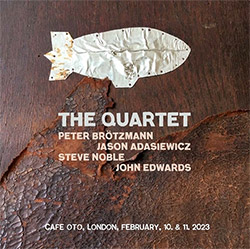

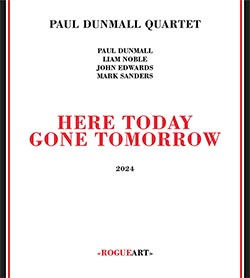
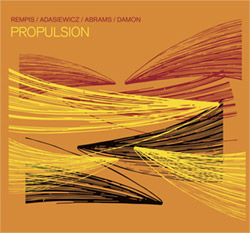

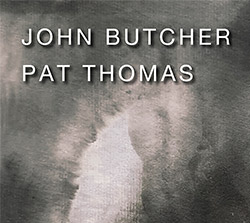
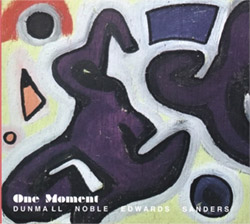




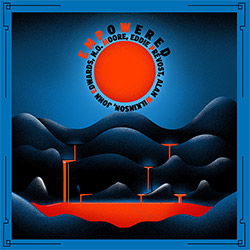

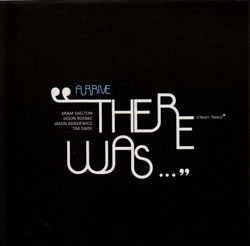
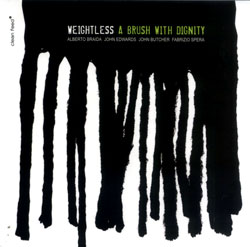

![Niblock, Phill / Anna Clementi / Thomas Stern: Zound Delta 2 [VINYL]](https://www.teuthida.com/productImages/misc4/34623.jpg)
![Yoko, Ono / The Great Learning Orchestra: Selected Recordings From Grapefruit [2 CDs]](https://www.teuthida.com/productImages/misc4/35841.jpg)

![Thomas, Pat: The Solar Model of Ibn-Al Shatir [VINYL]](https://www.teuthida.com/productImages/misc4/36044.jpg)
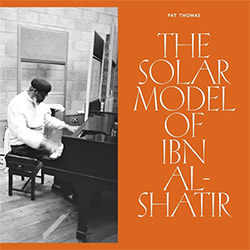



![Rodrigues, Ernesto / Nuno Torres / Guilherme Rodrigues: Whispers In The Moonlight - In Seven Movements [2CDs]](https://www.teuthida.com/productImages/misc4/35765.jpg)



![Cocks, Laura: FATHM [VINYL]](https://www.teuthida.com/productImages/misc4/36055.jpg)










![Ackerley / Prymek / Turner: All Hope With Sleeping Minds [CASSETTE]](https://www.teuthida.com/productImages/misc4/35950.jpg)
![Myers, David Lee : Tin Drop Tear [BOOK w/ DOWNLOAD]](https://www.teuthida.com/productImages/misc4/36030.jpg)




![Schindler, Udo / Sandy Ewen / Damon Smith: Munich Sound Studies Vols. 4, 5 & 6 [3 CDs]](https://www.teuthida.com/productImages/misc4/35966.jpg)
![Turbulence Orchestra & Sub-Units: Smear Out the Difficulties (Double Live) [2 CDs]](https://www.teuthida.com/productImages/misc4/36048.jpg)


![Perelman, Ivo / Tyshawn Sorey: Paralell Aesthetics [2 CDs]](https://www.teuthida.com/productImages/misc4/35871.jpg)


![Sjostrom, Harri: SoundScapes #4 Festival Berlin 2023 [3 CDs]](https://www.teuthida.com/productImages/misc4/35874.jpg)



![Glenn, Jordan: Flustered [CASSETTE]](https://www.teuthida.com/productImages/misc4/35948.jpg)










![Olencki, Weston : Pearls Ground Down To Powder [VINYL]](https://www.teuthida.com/productImages/misc4/35956.jpg)
![Myers, David Lee: Oculus [2CDs]](https://www.teuthida.com/productImages/misc4/35857.jpg)


![dustsceawung: dustsceawung [CASSETTE w/ Download]](https://www.teuthida.com/productImages/misc4/35753.jpg)




![Halls of the Machine: Atmospheres For Lovers And Sleepers [CASSETTE w/ DOWNLOAD]](https://www.teuthida.com/productImages/misc4/35806.jpg)



![AHC (Alexander Cooper): Lase [2 CDs]](https://www.teuthida.com/productImages/misc4/35754.jpg)



![Fagaschinski, Kai / Yan Jun : Graveyard Processions [VINYL w/ DOWNLOAD]](https://www.teuthida.com/productImages/misc4/35474.jpg)









![Zorn, John / JACK Quartet: The Complete String Quartets [2 CDs]](https://www.teuthida.com/productImages/misc4/35609.jpg)

![Lonsdale, Eden: Dawnings [2 CDs]](https://www.teuthida.com/productImages/misc4/35480.jpg)







![Sanna, Claudio: Compositori Sardi Contemporanei II [2 CDs]](https://www.teuthida.com/productImages/misc4/35317.jpg)







![Zurria, Manuel: Fame di Vento [3 CDs]](https://www.teuthida.com/productImages/misc4/35167.jpg)


![Electric Bird Noise / Derek Roddy: 8-10-22 [CD EP]](https://www.teuthida.com/productImages/misc4/35970.jpg)








![Elephant9 : Mythical River [VINYL]](https://www.teuthida.com/productImages/misc4/34624.jpg)



![Elephant9 with Terje Rypdal: Catching Fire [VINYL 2 LPs]](https://www.teuthida.com/productImages/misc4/35355.jpg)
![Deerlady (Obomsawin, Mali / Magdalena Abrego): Greatest Hits [VINYL]](https://www.teuthida.com/productImages/misc4/34876.jpg)







![Surplus 1980: Illusion of Consistency [CD]](https://www.teuthida.com/productImages/misc4/35069.jpg)
![Staiano, Moe: Away Towards the Light [VINYL + DOWNLOAD]](https://www.teuthida.com/productImages/misc4/35037.jpg)



![Caveira (Gomes / Sousa / Abras / Ferrandini): Ficar Vivo [VINYL]](https://www.teuthida.com/productImages/misc4/34643.jpg)
![Coley, Byron: Dating Tips for Touring Bands [VINYL]](https://www.teuthida.com/productImages/misc4/17906.jpg)

![Lost Kisses: My Life is Sad & Funny [DVD]](https://www.teuthida.com/productImages/misc4/lostKissesDVD.jpg)